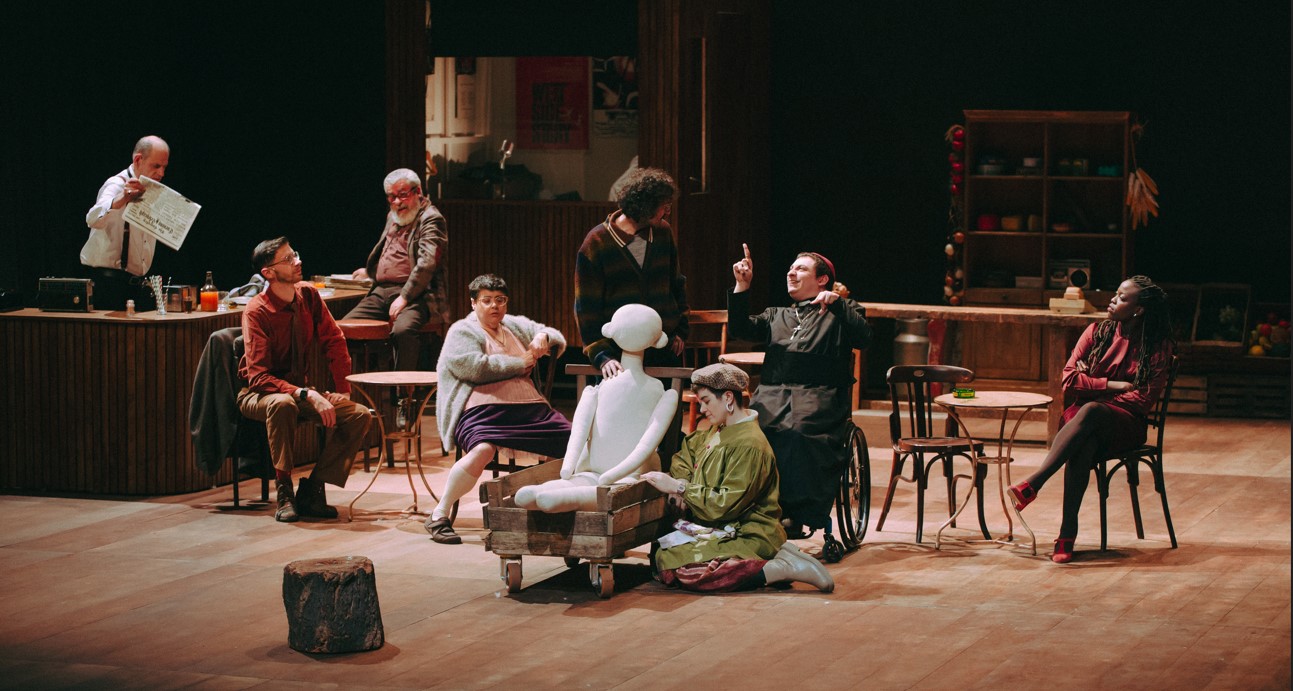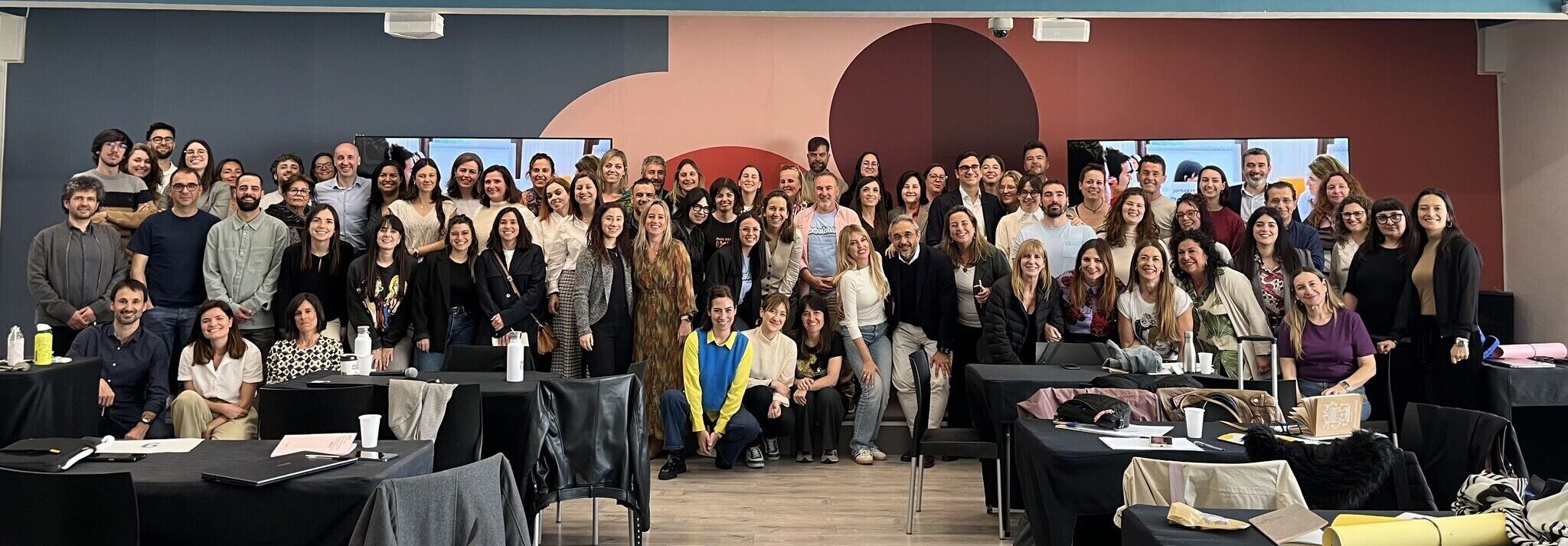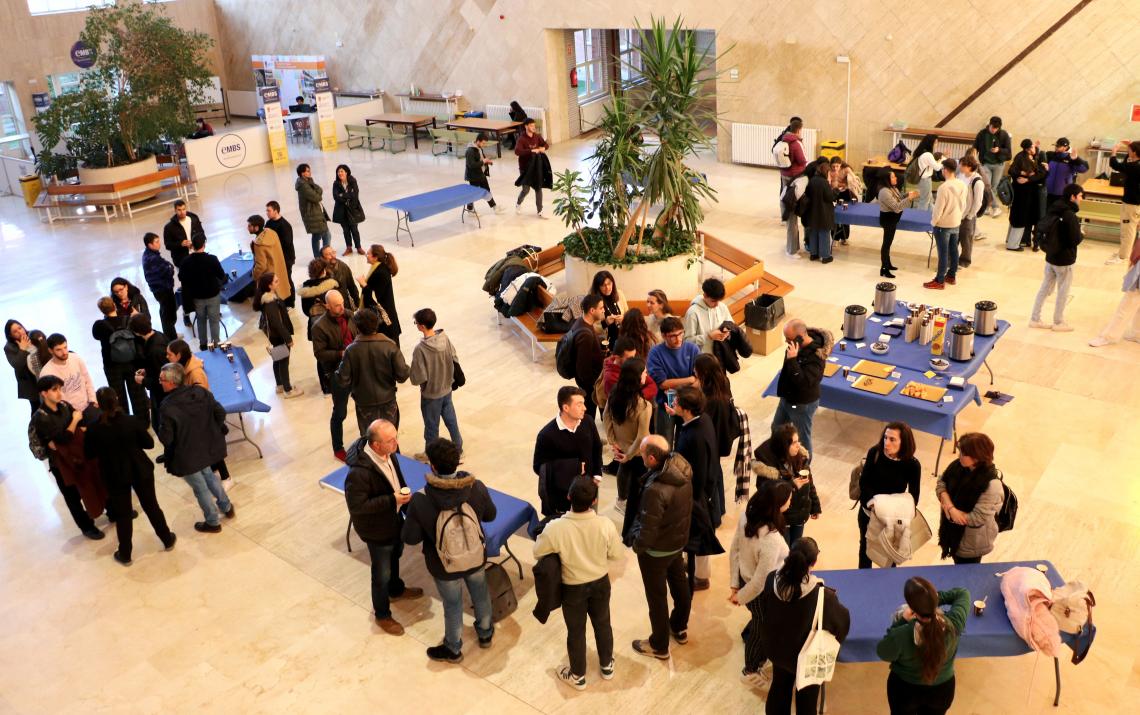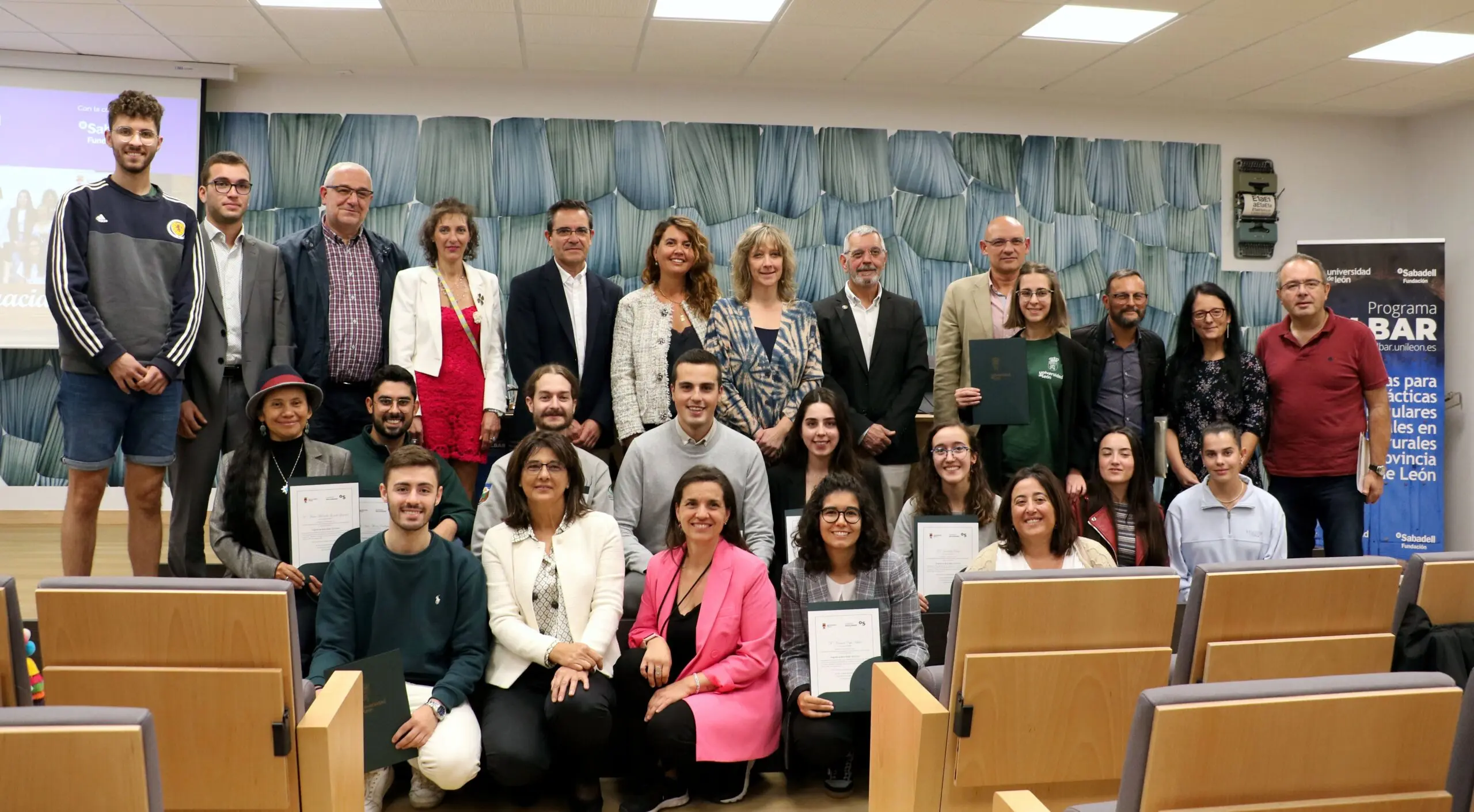When you support young talent, and their willingness to improve rural areas and the quality of life of people who make up such areas is added to the mix, you can reopen museums, revive oral traditions, learn from elders, get excited about forgotten historical facts, support local companies and highlight natural resources. These are some of the achievements of the students of the University of Leon who have taken part in the Ralbar programme, a project that has our support and that aims to develop initiatives that contribute to propelling the rural areas of the province.
This programme focuses on offering financial support and academic and institutional tutelage to students that carry out projects that contribute to activating rural spaces socially, economically or culturally as part of summertime extracurricular activities.
Celia Brito, Eva Díez, Marta Fernández, Judith Paniagua, Carmen Vega, Diego Álvarez, José María Vázquez, Adrián Valiente, Paula García, Héctor González, María Mercedes Lozada and Marta Puerta were the 12 students who, throughout the summer, have carried out more than 150 activities, leaving their mark on towns of the province of Leon through over 175 actions in which more than 2,000 people have participated. All of them agreed that their experience at the Ralbar scholarship programme was “a necessary and enriching taste of reality and one of the best experiences of my life”.
Raquel Domínguez, Ralbar coordinator and manager of the Institutional Relations Division, explained that the initiatives of the students “had an impact on the well-being of the rural population, have contributed to the restoration and dissemination of the natural and cultural heritage, and have channelled research projects to the economy, society and culture of our towns”.
The Ralbar programme has a fundamental role in furthering not only the professional growth of scholarship holders, but it also fosters their personal development through the acquisition of soft skills, such as communication, empathy, flexibility, commitment and perseverance. The project also contributes to the achievement of some of the Sustainable Development Goals defined in the 2030 Agenda of the United Nations and is enshrined within the Bank’s ESG framework, Sabadell’s Commitment to Sustainability, which seeks to promote transformational actions that contribute to sustainable development.
Learn more about the projects driven by the young scholarship holders in this video:



